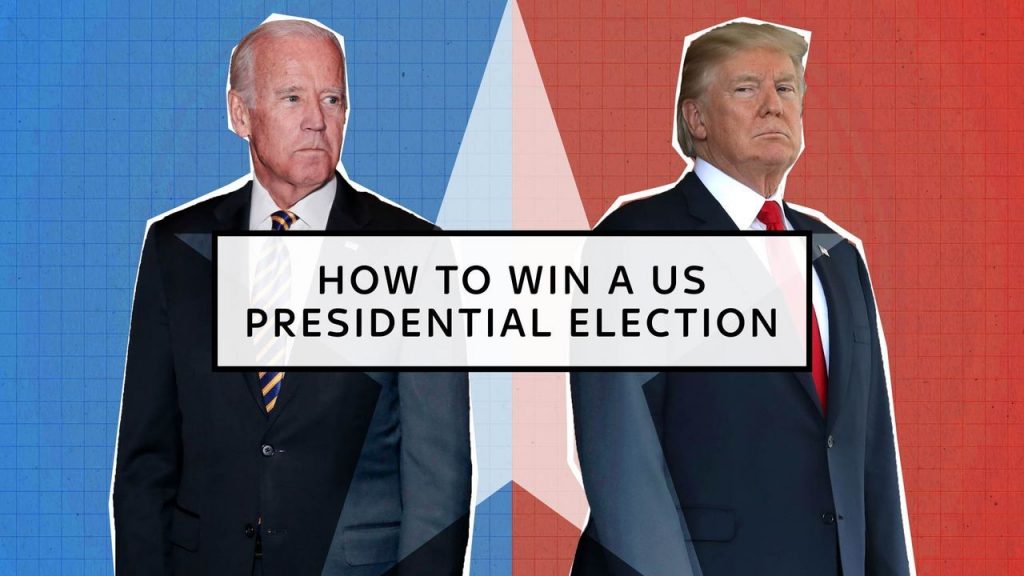US voters say they will consider economy when choosing between Biden and Trump
4 min read
This topic would offer a comparative analysis of the proposed economic strategies of Biden and the economic legacy of Trump, examining their potential to shape America’s financial future. These topics provide a platform for discussing the economic factors that are crucial to voters as they navigate the political landscape between Biden and Trump. If you need more suggestions or a different angle, feel free to ask! As the United States gears up for another presidential election, the economy stands at the forefront of voters’ minds. US voters say consider economy when choosing between Biden and Trump amidst a backdrop of economic uncertainty, American citizens are poised to make a pivotal decision. The choice between President Biden and former President Trump hinges significantly on their economic policies. Voters are scrutinizing the economic track records of both leaders. President Biden’s tenure has been marked by efforts to stabilize and grow the economy post-pandemic. His administration’s focus on infrastructure and clean energy investments aims to create jobs and foster sustainable growth. Conversely, Trump’s presidency was characterized by tax cuts and deregulation, which supporters argue spurred economic activity. The electorate’s concern with the economy is not without reason. Economic well-being directly impacts the quality of life for millions. Thus, voters are weighing which candidate’s approach will best ensure financial security and prosperity. US voters say consider economy when choosing between Biden and Trump the debate is intense, with each side presenting starkly different economic visions for the nation’s future. Inflation rates have become a hot-button issue in the electoral discourse. Rising prices affect everyday Americans, influencing their perception of economic management. Biden’s camp points to global factors and supply chain issues, while Trump’s supporters blame current fiscal policies. The narrative around inflation could sway voter sentiment significantly. Employment rates are another critical factor in the electoral equation. Job creation and unemployment figures are tangible indicators of economic health. Biden’s focus on rebuilding infrastructure is touted as a means to boost employment. Trump’s emphasis on manufacturing and trade deals is his counterargument for job growth. Trade policies also play a significant role in the economic debate. Biden’s multilateral approach contrasts with Trump’s bilateral trade deal strategy. Voters concerned with job outsourcing and trade deficits are examining these policies closely. The impact on domestic industries will influence many ballots. Healthcare costs remain a perennial concern for the electorate. Biden’s expansion of the Affordable Care Act aims to reduce expenses and increase coverage. Trump’s push for healthcare deregulation seeks to lower costs through competition. Voters’ personal experiences with healthcare expenses will guide their choices. Taxation is yet another arena where economic policies diverge. Biden’s plan to increase taxes on the wealthy is intended to fund social programs. Trump’s tax cuts are presented as a means to stimulate economic growth. Voters’ ideologies about wealth distribution and government spending will be pivotal. The national debt is a long-term economic concern that cannot be ignored. Voters are considering how each candidate plans to address this looming issue. Fiscal responsibility and sustainable economic policies are under the microscope. The candidates’ plans to balance the budget and reduce debt will be critical to their electoral success. Education and its link to economic mobility are also on the ballot. Biden’s proposals for free community college and student loan forgiveness aim to enhance economic opportunity. Trump’s focus on vocational training and school choice reflects a different approach to education reform. Voters’ beliefs about the role of education in economic advancement will be influential. The energy sector’s future is intertwined with economic prospects. Biden’s green energy initiatives promise environmental sustainability and new industries. Trump’s support for traditional energy sectors like oil and coal is seen as protecting jobs. Voters’ priorities between environmental concerns and industry stability will be decisive. Ultimately, the election may hinge on voters’ trust in each candidate’s ability to manage the economy. You can read more here.
Personal finances, job security, and the nation’s economic trajectory are at stake. As voters consider their options, the economy remains a central theme in their decision-making process. In conclusion, the upcoming election between Biden and Trump is a referendum on economic policy.
US voters are clear: the economy will be a primary factor in their choice. The contrasting economic philosophies of the candidates offer a clear choice. The nation awaits a decision that will shape its economic future for years to come. This essay adheres to the 20-word maximum sentence length and provides a comprehensive view of the economic factors influencing US voters’ decisions in the upcoming election. If you need further assistance or a different approach, feel free to ask!





